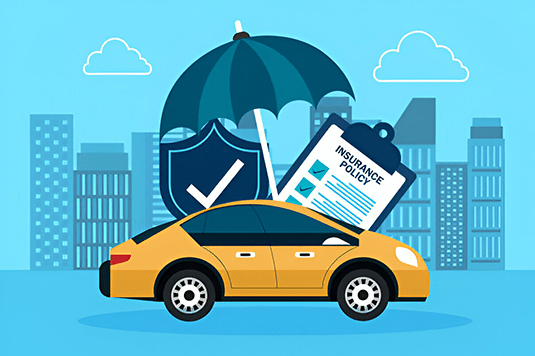Navigating the world of car insurance can feel daunting, especially with the myriad of options and technical jargon. However, understanding car insurance is crucial for every driver. It not only protects you from financial losses in case of accidents but also ensures compliance with legal requirements in most states. In this comprehensive guide, we’ll break down the essentials of car insurance, its types, benefits, and how to choose the best policy for your needs.
What is Car Insurance?
Car insurance is a contract between you and an insurance company that provides financial protection against physical damage, bodily injury, and liability arising from traffic accidents or theft. In exchange, you pay a premium to the insurer, who promises to cover specified losses as outlined in your policy.
Why Do You Need Car Insurance?
- Legal Compliance: Most states in the U.S. require drivers to carry a minimum level of car insurance. Driving without it can lead to fines, license suspension, or even legal action.
- Financial Protection: Accidents can lead to hefty repair costs, medical bills, and potential lawsuits. Insurance shields you from these unexpected expenses.
- Peace of Mind: Knowing you’re protected allows you to drive with confidence.
Types of Car Insurance Coverage
Understanding the different types of coverage helps you choose a policy that meets your needs:
- Liability Coverage:
- Bodily Injury Liability: Covers medical expenses and lost wages for the other party if you’re at fault in an accident.
- Property Damage Liability: Pays for repairs to the other party’s property if you’re responsible.
- Collision Coverage:
- Covers damage to your vehicle resulting from a collision with another car or object, regardless of fault.
- Comprehensive Coverage:
- Protects against non-collision-related damages such as theft, vandalism, natural disasters, and falling objects.
- Personal Injury Protection (PIP):
- Covers medical expenses, lost wages, and other costs for you and your passengers, regardless of fault.
- Uninsured/Underinsured Motorist Coverage:
- Protects you if you’re involved in an accident with a driver who has little or no insurance.
- Gap Insurance:
- Pays the difference between your car’s current value and the amount you owe on your auto loan if your car is totaled.
Factors That Affect Car Insurance Rates
Insurance premiums vary based on several factors:
- Driving Record: A clean record often leads to lower premiums.
- Age and Gender: Younger drivers and male drivers typically face higher rates.
- Location: Urban areas with high traffic density generally have higher premiums.
- Vehicle Type: Luxury and sports cars are costlier to insure than standard vehicles.
- Credit Score: In many states, a higher credit score can result in lower rates.
- Coverage Levels: Comprehensive policies cost more than basic liability coverage.
Tips for Choosing the Right Car Insurance Policy
- Assess Your Needs: Consider your driving habits, vehicle value, and financial situation.
- Compare Quotes: Shop around and obtain quotes from multiple insurers.
- Check Discounts: Many insurers offer discounts for safe driving, bundling policies, or installing anti-theft devices.
- Read the Fine Print: Ensure you understand the policy’s terms, conditions, and exclusions.
- Consider Customer Service: Research reviews and ratings to find an insurer with a good reputation.
How to Save on Car Insurance
- Increase Your Deductible: Opting for a higher deductible can lower your premium.
- Maintain a Good Credit Score: Regularly check and improve your credit report.
- Drive Safely: Avoid accidents and traffic violations.
- Bundle Policies: Combine your car insurance with other policies, like home or renter’s insurance.
- Shop Annually: Regularly compare policies to ensure you’re getting the best rate.
Common Car Insurance Myths
- Red Cars Cost More to Insure: Insurance companies base rates on the car’s make, model, and value, not its color.
- Older Cars Don’t Need Insurance: Liability coverage is required regardless of your car’s age.
- Personal Insurance Covers Business Use: If you use your car for business purposes, you may need commercial auto insurance.
The Claims Process: What to Expect
- Report the Incident: Notify your insurer immediately after an accident or loss.
- Document the Scene: Take photos, gather witness information, and file a police report if necessary.
- File a Claim: Submit the required documents and details to your insurer.
- Assessment: An adjuster will evaluate the damage and determine the payout.
- Settlement: Once the claim is approved, you’ll receive the payment or direct repairs will be arranged.
Understanding car insurance is vital for every driver. By learning about the different coverage types, factors influencing rates, and tips for saving, you can make informed decisions and find a policy that offers the right balance of protection and affordability. Always remember to review your policy regularly and update it as your needs change. With the right car insurance, you can drive with confidence, knowing you’re well-protected.

